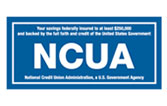Job Scams: A Guide to Avoiding Scams Online
Last Updated
February 2, 2024
Written By
Sarah Kearney
In this digital age, job seekers are presented with a surplus of employment opportunities online, but unfortunately, scammers have exploited some of the most well-known platforms, such as LinkedIn and Indeed, to deceive and take advantage of individuals looking to advance their career paths.
Through enticing work-from-home offers, reshipping schemes and fake job placements, these scams can jeopardize your financial security and personal information. Make sure you’re staying vigilant online when seeking new career opportunities – check out our guide to identify and steer clear of common online job scams!

- Remote Work Scams: Beware of Too-Good-to-Be-True Opportunities
With the rise of remote work, scammers often pose as legitimate companies offering high-paying jobs that require minimal effort. Be cautious if asked to pay for starter kits, “necessary” job training, or certifications. Avoid fake check scams where you’re asked to deposit a check and send back part of the money.
2. Reshipping Scams: Don’t Fall for Unusual Shipping Requests
Scammers may disguise fake quality control manager or virtual assistant positions that involve receiving, repackaging, and reshipping goods, often purchased with stolen credit cards. Legitimate employers would never ask you to engage in these kinds of activities. If your paychecks fail to arrive, and the company contact information suddenly no longer works, you’ve been scammed.
3. Nanny, Caregiver, or Personal Assistant Scams
Fake job ads for nannies, caregivers, or assistant roles are very common, with scammers posing as people you may know or individuals within your community. They may ask you to do them a favor, such as receiving a check, depositing it, and then sending part of the money elsewhere, whether it’s to another “employee” or a “vendor” they work with. Legitimate employers will never require such transactions by their employees. Be cautious and always verify the legitimacy of job offers before providing personal information.
4. Mystery Shopper Scams: Be Wary of Pay-to-Play Offers
While the idea of getting paid to shop is enticing, many mystery shopping opportunities are scams. Legitimate companies won’t ask for payment for certifications or job guarantees. If you’re asked to pay to secure a job, it’s likely a scam.
5. Job Placement Service Scams: Avoid Upfront Fees
Some “placement firms” may deceive applicants with promises of job placement for upfront fees. Honest firms typically don’t charge candidates. If asked for a fee, especially in advance, exercise caution and consider it a potential scam.
6. Government and Postal Job Scams: Official Channels Only
Federal and postal job openings are accessible to everyone and are always free to apply! Avoid responding to ads that promise jobs with these entities in exchange for payment. Only use official government websites like USAJobs.gov or usps.com/employment for legitimate opportunities.
Avoiding Job Scams: Protect Yourself with These Tips
- Research the Company: Remember, any good employer does their research before hiring someone new. You should do the same! Search for reviews or complaints about the company online, and make sure they have a legitimate website. Do they have any other employees? Check to make sure that listed company details are consistent across digital platforms!
- Consult Trusted Individuals: Discuss the job offer with someone you trust. Get their input to ensure it’s a legitimate opportunity. If something doesn’t feel right, trust your gut.
- No Payment for Jobs: Legitimate employers, including the government, won’t ask for payment to secure a job.
- Beware of Fake Check Scams: Never deposit a check and send back part of the money. This is an extremely common scam.
- Guard Personal Information: Refrain from providing sensitive information, such as social security numbers and bank account numbers, before accepting a position.
Fell for a Scam? Take Action:
- Contact the Payment Provider: Report the fraud to the company you used to send money and request a reversal of the transaction.
- Notify Your Bank: If bank information was shared, contact your financial institution immediately to safeguard your accounts.
Report Job Scams:
Help combat scams by reporting incidents to the Federal Trade Commission (FTC) at ReportFraud.ftc.gov. State attorney general offices are also channels for reporting such fraudulent activities.
For additional information on avoiding scams, visit ftc.gov/scams.
Author

Sarah graduated with her BFA in Graphic Design from the State University of New York at Fredonia in 2018 before beginning her career at Family First. Sarah is a designer, content creator, and community outreach coordinator, and is an active volunteer within the Rochester community.



